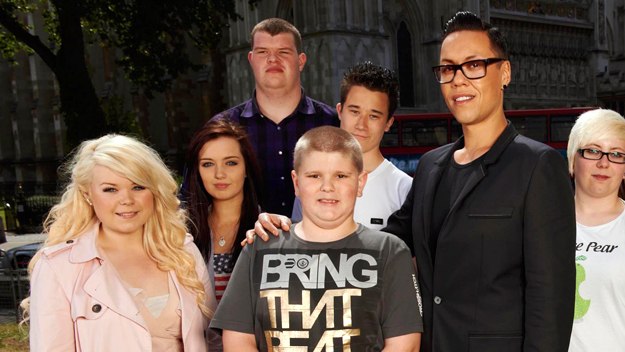
Is it normal to obsess about your body shape?
Whilst many of us don’t stress about what we eat, for some people mealtimes are more about horror than hunger.
It’s only natural to have a few hang-ups about the way you look and we’d bet good money that even Beyonce has her off days. However, if controlling your body image develops from a minor hang-up into a full-blown obsession, then you could be putting both your mental and physical health at risk.
In this clip from On the Edge and Online, Angharad heads out to do something that most people take for granted – go shopping in a supermarket. Angharad’s body image worries have meant that even the act of buying food can be a challenge, but it's one she's determined to conquer. You can watch all of On the Edge and Online over on All 4.
Poll
Is it normal to... obsess about your body shape?
Body Image Battles
Falling out of love with your body can lead you to take drastic and dangerous measures in an attempt to win back control. Here are some of the warning signs to watch out for...
Body Dysmorphia
Body dysmorphic disorder (BDD) is a psychological condition that literally distorts a person’s self-perception, leading them to believe they look different to how they actually appear in real life. This causes them to obsess about blemishes and flaws that may not even be noticeable to other people, such as scars, spots or the size of their facial features. Body shape is also common focus for people living with BDD. For instance, they may picture themselves as overweight when, in fact, they’re dangerously thin. On the flip side they may see themselves as weak and puny when, in reality, they’re more muscular than they think.
Eating disorders
Having a distorted view of your size, weight or body shape can also be the trigger for eating disorders. These are a range of eating-related conditions that can affect someone both mentally and physically, making them take extreme measures to try and control their appearance. These include:
- Anorexia: Keeping you bodyweight low through dieting, vomiting, laxatives (drugs that make you poo) or diuretics (substances that make you wee).
- Bulimia: Embarking on food binges followed by acts of ‘purging’ – emptying your body of the food through vomiting, laxatives and diuretics.
- Binge Eating Disorder (BED): A condition where people overeat after experiencing a loss of control, cramming large amounts of food in a short time even when they’re not hungry.
- Emotional over-eating: Binge eating triggered by negative emotions rather than hunger, often followed by feelings of guilt and shame that make the problem even worse.
- Other disordered eating problems: Lesser-known conditions such as pica (swallowing non-edible items that shouldn’t be eaten), rumination disorder (repeatedly bringing up and re-swallowing food), Prader-Willi syndrome (a genetic disorder that causes an insatiable appetite), selective eating disorder (a condition associated with food phobias) and night eating syndrome. If you want to know more about any of these, check out the BEAT website.
These conditions can lead to serious health problems such as malnutrition, weak bones, hair loss and infertility and they have been associated with other issues such as depression, alcohol abuse and self-harm. Anyone can develop an eating disorder regardless of age, sex or background and over 725,000 men and women are believed to be affected in the UK.
Body issues for boys
Newsflash: body issues aren’t just a girl thing. Yep, sorry guys, just because you’re packin’ tackle doesn’t mean you get a free pass when it comes to obsessing about your body. And it’s not just about getting skinny either. Many guys suffer from a form of BDD related to bodybuilding where a warped sense of underdevelopment leads them to pack on the muscle. This leads them to find increasingly extreme ways to bulk up, often resorting to steroids or dangerous levels of exercise.
If you want to find out more about how BDD can affect boys, check out this interview with Hollyoaks actor Alfie Browne-Sykes as he discusses his character’s struggle with body dysmorphia and descent into steroid abuse.
Getting Help
Both BDD and eating disorders are treatable conditions and, with the right help, you can make a full recovery and go on to live a normal, healthy life. For more information, talk to you doctor or check out the support pages mentioned below.
Sizing up the issue
If you’re worried about how you look or want to find out more about BDD and eating disorders, check out our support site.




